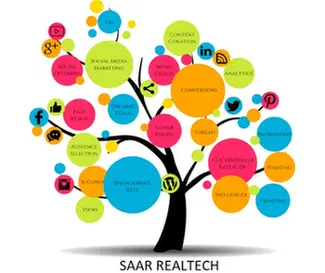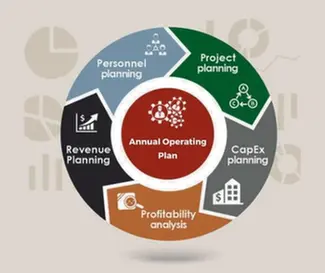Digital Marketing the fastest & the most effective tool for Real Estate Marketer
Social media is revolutionizing the Real Estate industry. It has evolved into one of the most efficient ways for Real Estate marketers to connect with & attract potential buyers, as well as grow their business online.
Digital marketing can indeed be a very effective tool for real estate marketers, especially in today's digital age where most people are using the internet to search for properties.
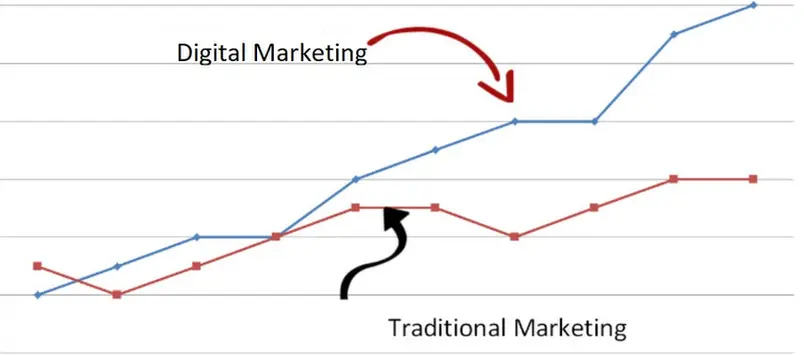
Here are some reasons why digital marketing can be the fastest and most effective tool for real estate marketers :
1. Wide reach: Digital marketing allows real estate marketers to reach a wider audience, beyond their immediate geographical location. With the help of social media platforms, search engines, and email marketing, they can target potential buyers or tenants from different parts of the world.
2. Cost-effective: Compared to traditional marketing methods like Newspaper ads, , radio ads, and billboards, digital marketing is more cost-effective. Real estate marketers can use social media platforms to promote their properties, create engaging content to attract potential buyers, and run targeted ad campaigns to increase visibility.
3. Real-time feedback: Digital marketing allows real estate marketers to receive real-time feedback from their audience. They can monitor the performance of their marketing campaigns and make changes accordingly. For example, if a particular ad is not generating enough leads, they can change the ad copy or the targeting to improve its performance.
4. Data-driven: With the help of digital marketing, real estate marketers can collect and analyse data to gain insights into their target audience's behaviour and preferences. They can use this data to create more targeted and personalized marketing campaigns that resonate with their audience.
5. Builds brand awareness: Digital marketing can help real estate marketers build their brand awareness and credibility. They can create engaging content that showcases their expertise and knowledge in the industry, which can help them establish themselves as thought leaders in their field.
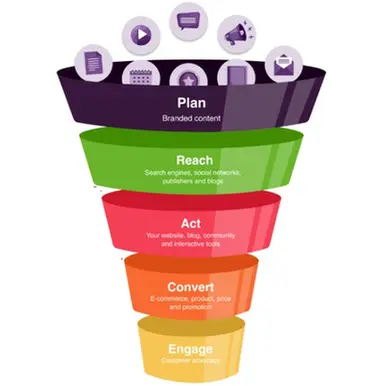
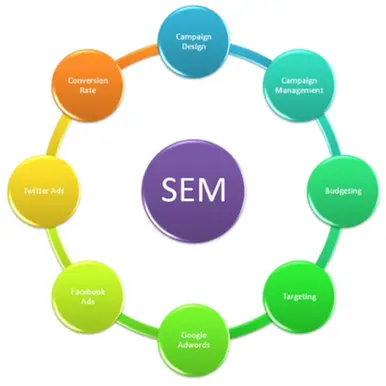
With so many real estate businesses competing for customers, it is essential to have a strong digital marketing strategy in place that will help real estate marketers to stand out from the crowd.
The digital marketing landscape is constantly evolving as new technologies and platforms emerge. Here are some of the key components of the digital marketing landscape :
1. Search Engine Optimization (SEO): SEO is the practice of optimizing websites and content to rank higher in search engine results pages (SERPs). SEO involves a variety of tactics, including keyword research, on-page optimization, and link building.
2. Pay-Per-Click Advertising (PPC): PPC advertising involves paying for ads that appear in search engine results or on other websites. Advertisers only pay when a user clicks on their ad, which makes it a cost-effective option for many businesses.
3. Social Media Marketing: Social media marketing involves using social media platforms like Facebook, Twitter, and Instagram to promote products and services. This can include paid ads, organic content, and influencer marketing.
4. Content Marketing: Content marketing involves creating valuable content that attracts and engages an audience. This can include blog posts, videos, infographics, and more.
5. Email Marketing: Email marketing involves sending promotional messages to a list of subscribers. This can include newsletters, promotional offers, and other types of content.
6. Mobile Marketing: Mobile marketing involves targeting users on mobile devices with ads and other types of content. This can include mobile-friendly websites, in-app advertising, and SMS marketing.
7. Marketing Analytics:Marketing analytics involves measuring and analysing the effectiveness of marketing campaigns. This can include tracking website traffic, conversion rates, and other metrics to optimize campaigns and improve ROI.
The digital marketing landscape is complex and constantly evolving. Businesses must stay up-to-date on the latest trends and technologies to succeed in the digital space. There are many competitors in the digital marketing landscape, but here are two key players :
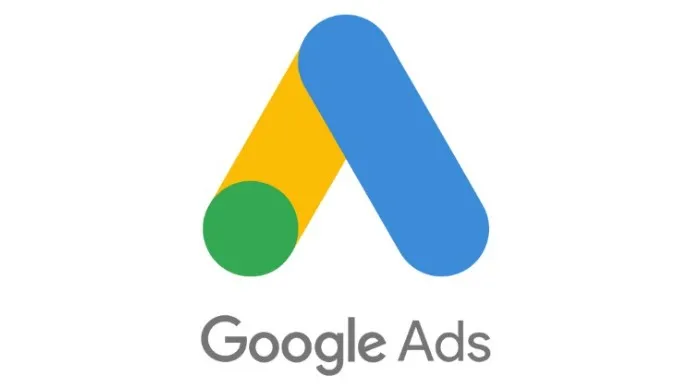

Google is a dominant player in the digital marketing landscape, thanks to its search engine and advertising platform. With Google Ads, businesses can create and target ads to specific audiences across Google's search and display networks. Google Analytics also provides in-depth insights into website traffic and user behaviour, making it a valuable tool for marketers.
Facebook is one of the largest social media platforms in the world, with over 2 billion active users. Its advertising platform allows businesses to target specific audiences with a range of ad formats, including video, carousel, and sponsored posts. Facebook's detailed targeting options and user data make it a powerful tool for businesses looking to reach their ideal customers.
Critical Points & constant areas of improvement
1. User experience: Website should be more user-friendly, easy to navigate, and provides a good user experience. Optimisation of website's design, layout, and functionality to ensure that visitors can quickly find what they are looking for and have a positive experience.
2. Search engine optimization (SEO): Optimize website's content, structure, and code for search engines to improve its visibility in search engine results pages. This can include using relevant keywords, creating quality content, and building high-quality backlinks to your site.
3. Social media: Establish a strong presence on social media platforms relevant to our business, and engage with our followers regularly by sharing valuable content, responding to comments, and addressing customer inquiries.
4. Content marketing: Create and publish high-quality, relevant content that educates and engages our audience. This can include blog posts, videos, infographics, and other types of content that align with your business goals and target audience.
5. Analytics and data tracking: By using analytics tools to track our website's performance and user behaviour, and use this data to make informed decisions about how to improve our digital presence.
6. Mobile optimization: Ensuring that website is mobile-friendly and responsive to different devices and screen sizes. More and more people are accessing the internet from their mobile devices, so having a mobile-optimized website is critical.
Prepared by SAAR Realtech
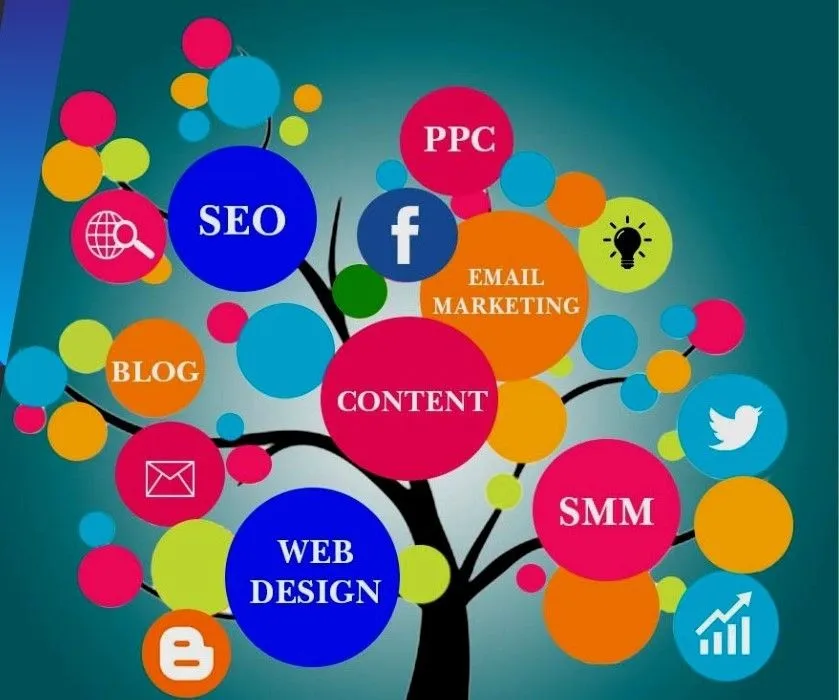
Recent Blogs
1. Why is Real Estate Research Important
2. Maximizing Real Estate Sales
3. A Case Study On Grand Icon
4. Case Study of SAAR Realtech at IIM, Indore
5. Annual Operating Plan
6. Strategic Partnership
7. Sales & Marketing
8. Digital Marketing
Digital Marketing the fastest & the most effective tool for Real Estate Marketer
Social media is revolutionizing the Real Estate industry. It has evolved into one of the most efficient ways for Real Estate marketers to connect with & attract potential buyers, as well as grow their business online.
Digital marketing can indeed be a very effective tool for real estate marketers, especially in today's digital age where most people are using the internet to search for properties.

Here are some reasons why digital marketing can be the fastest and most effective tool for real estate marketers :
1. Wide reach: Digital marketing allows real estate marketers to reach a wider audience, beyond their immediate geographical location. With the help of social media platforms, search engines, and email marketing, they can target potential buyers or tenants from different parts of the world.
2. Cost-effective: Compared to traditional marketing methods like Newspaper ads, , radio ads, and billboards, digital marketing is more cost-effective. Real estate marketers can use social media platforms to promote their properties, create engaging content to attract potential buyers, and run targeted ad campaigns to increase visibility.
3. Real-time feedback: Digital marketing allows real estate marketers to receive real-time feedback from their audience. They can monitor the performance of their marketing campaigns and make changes accordingly. For example, if a particular ad is not generating enough leads, they can change the ad copy or the targeting to improve its performance.
4. Data-driven: With the help of digital marketing, real estate marketers can collect and analyse data to gain insights into their target audience's behaviour and preferences. They can use this data to create more targeted and personalized marketing campaigns that resonate with their audience.
5. Builds brand awareness: Digital marketing can help real estate marketers build their brand awareness and credibility. They can create engaging content that showcases their expertise and knowledge in the industry, which can help them establish themselves as thought leaders in their field.


With so many real estate businesses competing for customers, it is essential to have a strong digital marketing strategy in place that will help real estate marketers to stand out from the crowd.
The digital marketing landscape is constantly evolving as new technologies and platforms emerge. Here are some of the key components of the digital marketing landscape :
1. Search Engine Optimization (SEO): SEO is the practice of optimizing websites and content to rank higher in search engine results pages (SERPs). SEO involves a variety of tactics, including keyword research, on-page optimization, and link building.
2. Pay-Per-Click Advertising (PPC): PPC advertising involves paying for ads that appear in search engine results or on other websites. Advertisers only pay when a user clicks on their ad, which makes it a cost-effective option for many businesses.
3. Social Media Marketing: Social media marketing involves using social media platforms like Facebook, Twitter, and Instagram to promote products and services. This can include paid ads, organic content, and influencer marketing.
4. Content Marketing: Content marketing involves creating valuable content that attracts and engages an audience. This can include blog posts, videos, infographics, and more.
5. Email Marketing: Email marketing involves sending promotional messages to a list of subscribers. This can include newsletters, promotional offers, and other types of content.
6. Mobile Marketing: Mobile marketing involves targeting users on mobile devices with ads and other types of content. This can include mobile-friendly websites, in-app advertising, and SMS marketing.
7. Marketing Analytics:Marketing analytics involves measuring and analysing the effectiveness of marketing campaigns. This can include tracking website traffic, conversion rates, and other metrics to optimize campaigns and improve ROI.
The digital marketing landscape is complex and constantly evolving. Businesses must stay up-to-date on the latest trends and technologies to succeed in the digital space. There are many competitors in the digital marketing landscape, but here are two key players :


Google is a dominant player in the digital marketing landscape, thanks to its search engine and advertising platform. With Google Ads, businesses can create and target ads to specific audiences across Google's search and display networks. Google Analytics also provides in-depth insights into website traffic and user behaviour, making it a valuable tool for marketers.
Facebook is one of the largest social media platforms in the world, with over 2 billion active users. Its advertising platform allows businesses to target specific audiences with a range of ad formats, including video, carousel, and sponsored posts. Facebook's detailed targeting options and user data make it a powerful tool for businesses looking to reach their ideal customers.
Critical Points & constant areas of improvement
1. User experience: Website should be more user-friendly, easy to navigate, and provides a good user experience. Optimisation of website's design, layout, and functionality to ensure that visitors can quickly find what they are looking for and have a positive experience.
2. Search engine optimization (SEO): Optimize website's content, structure, and code for search engines to improve its visibility in search engine results pages. This can include using relevant keywords, creating quality content, and building high-quality backlinks to your site.
3. Social media: Establish a strong presence on social media platforms relevant to our business, and engage with our followers regularly by sharing valuable content, responding to comments, and addressing customer inquiries.
4. Content marketing: Create and publish high-quality, relevant content that educates and engages our audience. This can include blog posts, videos, infographics, and other types of content that align with your business goals and target audience.
5. Analytics and data tracking: By using analytics tools to track our website's performance and user behaviour, and use this data to make informed decisions about how to improve our digital presence.
6. Mobile optimization: Ensuring that website is mobile-friendly and responsive to different devices and screen sizes. More and more people are accessing the internet from their mobile devices, so having a mobile-optimized website is critical.
Prepared by SAAR Realtech

Recent Blogs
1. Why is Real Estate Research Important
2. Maximizing Real Estate Sales
3. A Case Study On Grand Icon
4. Case Study of SAAR Realtech at IIM, Indore
5. Annual Operating Plan
6. Strategic Partnership
7. Sales & Marketing
8. Digital Marketing
Quick Links
Popular Links
Get In Touch
904-Durain, Nyati Environ,
Lane No 5, Tingare Nagar,
Vishrantwadi, Pune
© 2023 All Rights Reserved. Designed by Outdo Digital Technologies
